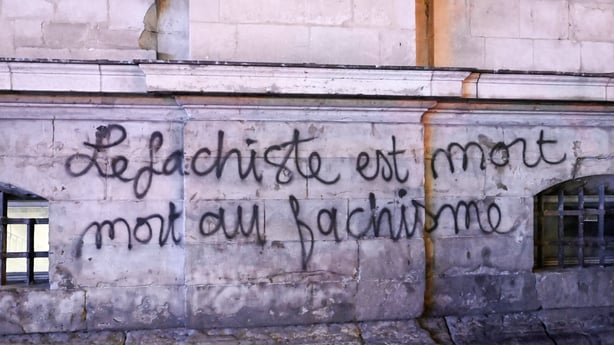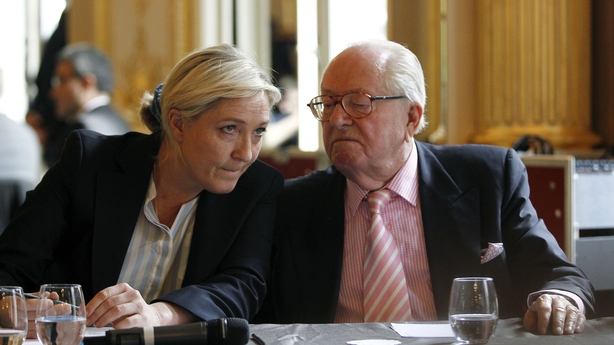The co-founder of France's main postwar far-right movement Jean-Marie Le Pen divided the country even after his death, with the government criticising celebrations that erupted across the country.
The right praised his contribution to politics but the left praised the demonstrations and branded him a "fascist".
In the hours after his death, hundreds of people took to the streets in cities across France to celebrate his demise, singing, letting off fireworks and making toasts with champagne.
Jubilant opponents of Mr Le Pen cheered as they gathered in Place de la Republique in central Paris for what they dubbed an "apero giant" (giant aperitif), and brandishing placards.
"Nothing, absolutely nothing justifies dancing on a corpse. The death of a man, even if he is a political opponent, should inspire only restraint and dignity," Interior Minister Bruno Retailleau wrote on X.
"These scenes of jubilation are simply shameful," he added.

Defence Minister Sebastien Lecornu told Europe 1 radio: "The political struggle is for the living, so we must continue with the living but respect the dead. It is a question of dignity."
Government spokesperson Sophie Primas said the "dead" had the right to "respect" even though Mr Le Pen made "completely unacceptable remarks" and "acted in sometimes unacceptable ways".
In the southeastern city of Lyon, seven people were arrested after a rally called by the hard-left where rubbish bins were burned and projectiles were thrown at the police. Some 600 people took part in the celebration.
Police said three people were arrested at the Paris rally that gathered 650 people.
But the parliamentary whip of the hard-left France Unbowed (LFI) in parliament, Mathilde Panot, said the demonstrations echoed the "spirt of Charlie".
Mr Le Pen's death coincided with the 10th anniversary of the massacre at the Charlie Hebdo satirical newspaper by Islamist attackers that shocked the country and led to fierce debate about freedom of expression and religion.
The far-right-winger was an "enemy of the Republic", Ms Panot told RTL radio.
Socialist MP Jerome Guedj told Public Senat TV that while "I find it wrong to rejoice at the death of a man, I also find it wrong to sugarcoat his career".

In a tribute on X, French Prime Minister Francois Bayrou said Mr Le Pen was a "fighter" and a "figure of French political life", a comment that enraged the hard-left.
"Jean-Marie Le Pen... was not just 'a figure of French political life' as Francois Bayrou said. Respect for the deceased must not lead to blindness to his career," said the leader of the LFI's MPs in the European Parliament, Manon Aubry, describing Mr Le Pen as "a notorious racist and anti-Semite".
A family funeral for Mr Le Pen is to be held on Saturday in his home town of La Trinite-sur-Mer in Brittany.
His political mantle was taken by his daughter Marine but she moved emphatically to distance the movement from the legacy of her father, renaming the party the National Rally (RN) and embarking on a process dubbed "dediabolisation" (de-demonisation) to make it electable.
In her first public reaction, Marine Le Pen today called her father a "warrior", adding that "many" people were mourning him.
"Many people he loves are waiting for him up there. Many who love him are mourning him down here," she wrote on X.
Ms Le Pen had been returning from a visit to the cyclone-ravaged French Indian Ocean island of Mayotte when news broke of her father's death.
The RN's deputy leader Louis Aliot confirmed reports that she had learned of the death of her father from reporters travelling with her.
"We were on the plane in Nairobi where we made a technical stopover," and it was in the Kenyan capital "that journalists who were on the flight informed us of the death", he told TF1 television channel.

